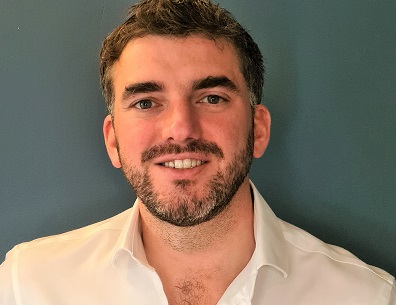Guest comment by Chris Maclean
In recent years, the role of CFOs has evolved to include integrating sustainability into financial decision-making, moving beyond a focus on financial risk and compliance. This shift acknowledges the growing importance of sustainability and its correlation with financial performance for long-term success.
We recently conducted research involving 150 CFOs and found that synergy between sustainability and financial performance is recognised. Over half (53%) consider sustainability to be very important, and a third see sustainability as one of the most crucial aspects of their responsibilities.
The research also demonstrates that an overwhelming 85% believe that achieving net zero emissions is essential for business growth. These findings further emphasise the increasing recognition of the environmental imperative and how it can pave the way for long-term success.
CFOs understand that implementing sustainable initiatives is not simply a moral obligation but also holds strategic advantages. By aligning financial decisions with sustainable practices, businesses can futureproof their operations, enhance their reputation, and capitalise on emerging market opportunities.
A significant 44% of CFOs consider the finance department to be pivotal in driving sustainable initiatives. This is unsurprising, as the finance department can effectively evaluate the cost and return on investment of sustainability projects, assess the feasibility of renewable technologies, incorporate sustainability into budgets, ensure transparent reporting, and align financial decisions with long-term strategic goals.
What is missing are accurate insights, robust modelling, and a deep enough understanding of market volatility
It is evident that CFOs possess not only the appetite but also the expertise to drive sustainability. As such, arming decision makers with valuable data and insights, extracted and analysed in real-time further empower CFOs to sign off and execute sustainable initiatives.
The practicalities of realising sustainability goals can present challenges. CFOs identify increased overhead costs (27%), managing financial risks (24%), and the complexity of renewable technology (21%) as the main barriers to signing off sustainability investments.
While most are increasingly recognising the need to incorporate sustainability considerations into their financial decision-making process, many lack the tools and insights necessary to properly implement renewable technologies.
What is missing, perhaps, are accurate insights, robust modelling, and a deep enough understanding of market volatility.
The key to building strong sustainability business cases and effective carbon-neutral strategies is to replace inaccurate conjecture and static spreadsheet modelling with holistic, dynamic, and bespoke financial modelling. This approach will build business confidence in decision-making, accelerate action, and expedite the journey to net zero.
CFOs require comprehensive, data-driven insights with investment-grade cost-benefit analytics to assess the financial viability and long-term impacts of renewable projects. This is what will achieve sign-off on sustainability investments.
They are uniquely positioned to drive sustainability initiatives and are becoming increasingly aware of the financial and wider business benefits
To enable more confident and informed decision-making, there are a number of dynamic platforms and specialist expertise available. Data and insights and robust modelling from innovative platforms can provide CFOs with insights on the financial implication of sustainability investments.
These platforms are game-changers in providing real-time visibility into the effectiveness of an organisation’s energy mix against the objectives of their sustainability strategies, enabling CFOs to analyse and optimise their energy usage.
Complementary counsel from energy procurement specialists can help CFOs overcome the challenges they face in integrating sustainability into financial decision-making by having a deep knowledge of the energy market. These industry experts can also add value to C-suite decision-making by connecting them to a network of partners and advisors who can provide further guidance and support in implementing their renewable initiatives.
The changing role reflects the growing importance of sustainability in business strategy. They are uniquely positioned to drive sustainability initiatives and are becoming increasingly aware of the financial and wider business benefits that come from aligning financial decisions with sustainable practices.
CFOs hold power in contributing to the success of their organisations and enabling operational efficiencies while addressing pressing environmental challenges. With the help of data-driven insights and innovative platforms, they can make informed decisions, overcome barriers impeding their organisation’s net zero ambitions, and accelerate the transition to a more sustainable future.
Chris Maclean is CEO of Open Energy Market

